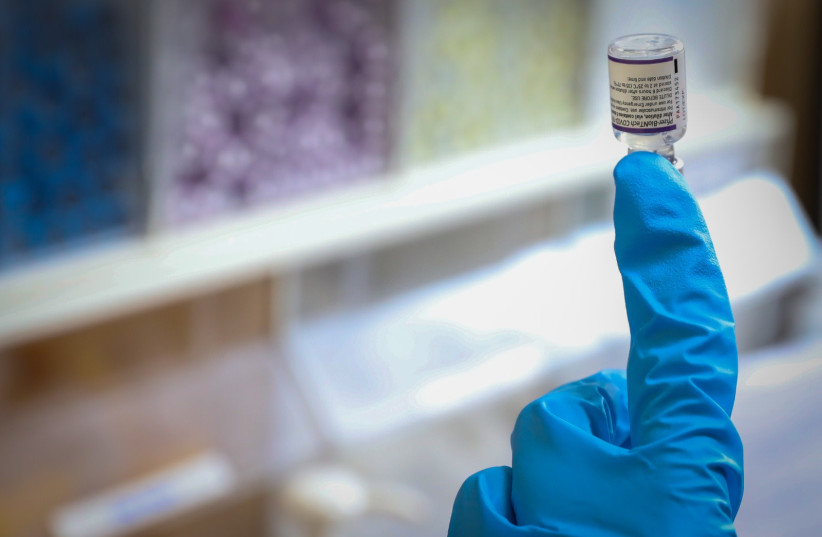Israel will start offering AstraZeneca's antibody cocktail Evusheld, used to prevent COVID-19, to people with compromised immune systems who did not get a sufficient antibody boost from vaccines, the Health Ministry said on Tuesday.
Evusheld has been approved by the US Food and Drug Administration and has proven to be 83% effective in preventing serious illness and death from COVID-19.
It is not a treatment for those already sick or a prevention for those already exposed to the virus, the company said.
Evusheld will be made available for people aged 12 or older who weigh more than 40 kg, tested negative for COVID-19 and did not come into contact with a coronavirus patient in the days prior to getting the vaccine.
The cocktail will "be given regardless of past recovery from COVID-19 or receiving previous coronavirus vaccine doses, provided that two weeks have passed since getting the vaccine," AstraZeneca said.

Last month, the Health Ministry approved the fourth jab for immunocompromised Israelis over the age of 18.
As some 699,505 Israelis have been vaccinated four times against the coronavirus, the Omicron wave died down and the 23,555 new cases reported on Monday continued the steady decline in numbers.
Prof. Eran Segal, seeing optimistic signs, suggested later on Monday that this year's Purim holiday will not be as case-heavy and stressful as it was over the last two years, during the ongoing COVID-19 pandemic.
Shira Silkoff contributed to this report.
